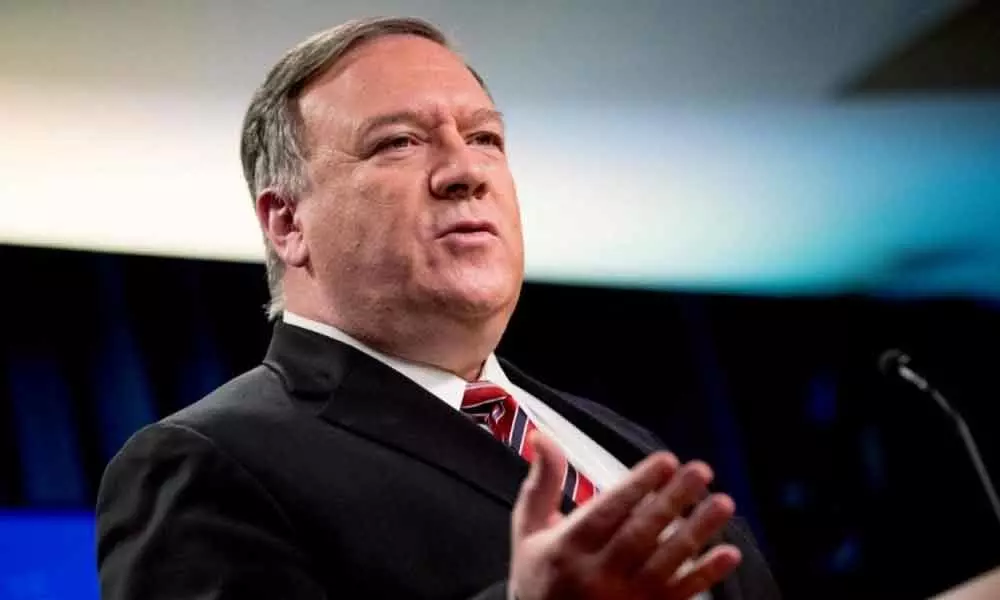'Supporting meaningful autonomy': US announces new visa bans on China over access to Tibet

US Secretary of State Mike Pompeo (Photo| AP
Pompeo said the US will continue to work to advance the sustainable economic development, environmental conservation, and humanitarian conditions of Tibetan communities within China.
Washington: The US has announced new visa bans on senior Chinese officials involved in restricting access to foreigners to the sensitive region of Tibet and reaffirmed its support for "meaningful autonomy" for Tibetans, opening another point of friction amid tense relations between Washington and Beijing.
Secretary of State Mike Pompeo said he was taking action against an unspecified number of Chinese officials, including from the ruling Communist Party, under a US law that calls on China to let Americans visit Tibet.
'Today I announced visa restrictions on PRC (Peoples Republic of China) officials involved in restricting foreigners' access to Tibet. We will continue to seek reciprocity in our relationship,' Pompeo tweeted on Tuesday.
Beijing has continued systematically to obstruct travel to the Tibetan Autonomous Region (TAR) and other Tibetan areas by US diplomats and other officials, journalists, and tourists, while Chinese officials and other citizens enjoy far greater access to the United States, he said in a statement.
As such, Pompeo said he is announcing visa restrictions on Chinese government and Chinese Communist Party officials determined to be 'substantially involved in the formulation or execution of policies related to access for foreigners to Tibetan areas,' pursuant to the Reciprocal Access to Tibet Act of 2018.
The Act, signed into law by President Donald Trump in December 2018.
It calls for denying access to the US for Chinese officials known to be involved in restricting visits to Tibet.
Access to Tibetan areas is increasingly vital to regional stability, given the Chinese human rights abuses there, as well as Beijing's failure to prevent environmental degradation near the headwaters of Asia's major rivers, he said.
Pompeo said the US will continue to work to advance the sustainable economic development, environmental conservation, and humanitarian conditions of Tibetan communities within China and abroad.
We also remain committed to supporting meaningful autonomy for Tibetans, respect for their fundamental and unalienable human rights, and the preservation of their unique religious, cultural, and linguistic identity.
The Dalai Lama, Tibet's exiled spiritual leader has been demanding meaningful autonomy for Tibetans.
But China has viewed the India-based 85-year-old Dalai Lama as a "separatist."
"In the spirit of true reciprocity, we will work closely with the US Congress to ensure US citizens have full access to all areas of the People's Republic of China, including the TAR and other Tibetan areas," Pompeo said.
The State Department funding for the Tibetan issues for the fiscal year 2021 beginning October 1 has been proposed to be USD17 million and USD1 million for the Special Coordinator for Tibetan Issues, according to the budget papers which is now making its way through the Congressional approval process.
Relations between Washington and Beijing have spiralled downward since the outbreak of the novel coronavirus, which Trump has blamed on China.
The two countries have also sparred over China imposing a new national security law in Hong Kong last month.
Restrictions on American journalists by China and retaliatory actions by the US, and differences over Beijing's treatment of its Uyghur Muslim population in the restive region of Xinjiang have also contributed to the worsening bilateral ties.








